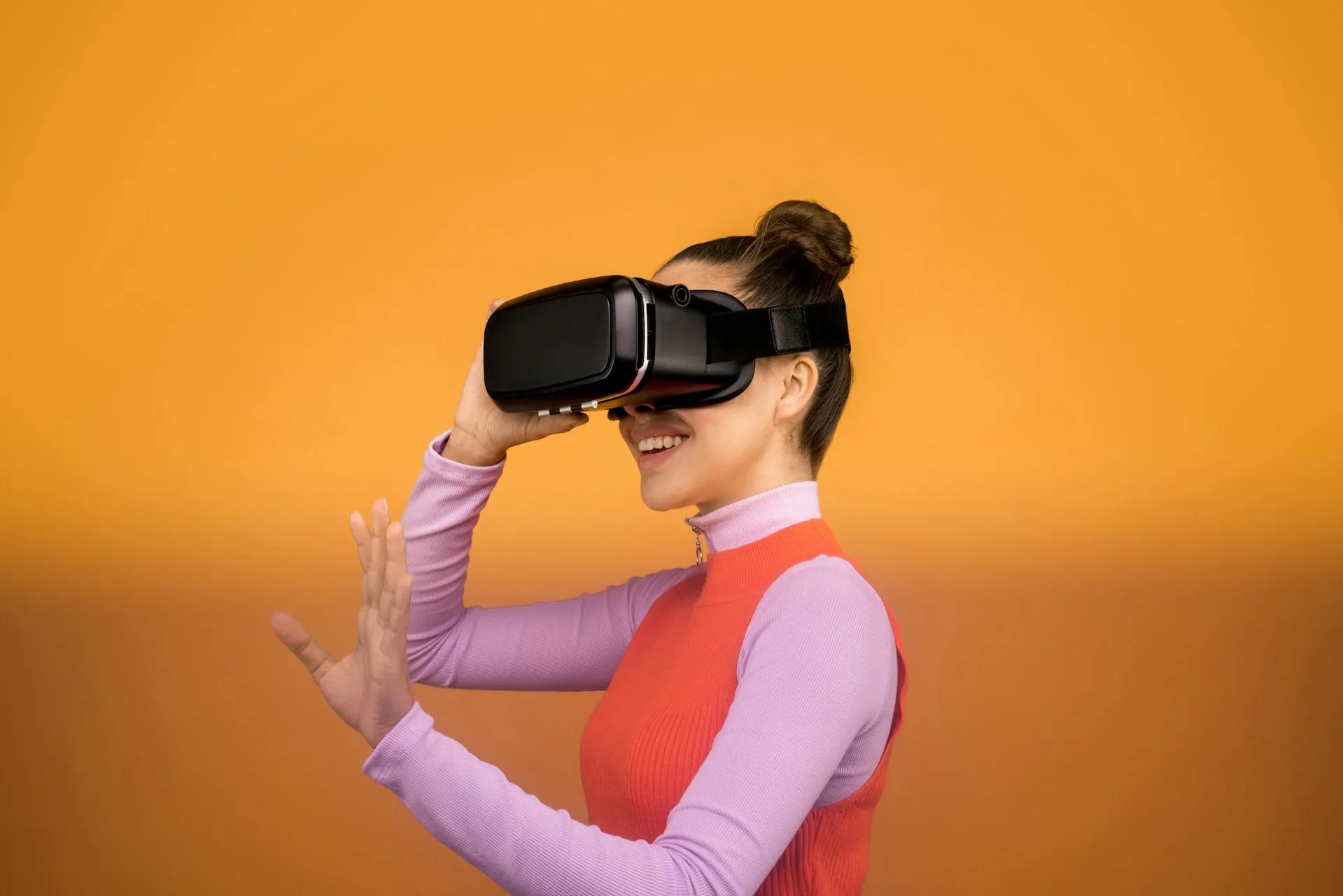The combination of AI and Virtual Reality is transforming the way we interact with the digital world, taking immersive experiences to a whole new level. Artificial intelligence (AI) is revolutionizing virtual reality (VR) by making it more intelligent, interactive and personalized. This article explores how AI and Virtual Reality are enhancing immersive experiences, from entertainment to education to professional training.

AI and Virtual Reality: The Technology Synergy
The synergy between AI and Virtual Reality is driving a significant evolution in digital experiences. AI has the ability to process large amounts of data and learn from it, while virtual reality creates three-dimensional environments that allow users to immerse themselves in digital worlds. By combining these technologies, highly personalized and adaptive experiences can be created that respond in real time to user actions.
For example, in video games, AI and Virtual Reality allow AI-controlled characters to act more realistically and interact dynamically with players. These characters can learn and adapt to the user’s play style, offering a more challenging and immersive experience.
Personalization of AI Experiences
One of the biggest benefits of AI and Virtual Reality integration is the ability to personalize immersive experiences. AI can analyze user behavior and preferences to adjust the virtual environment accordingly. This is particularly useful in training and education applications, where VR environments can be tailored to individual user needs.
For example, in vocational training, AI and Virtual Reality can create customized simulations that reflect specific situations that a worker might face in their day-to-day work. These simulations can be adapted in real time to increase or decrease difficulty, ensuring that training is as effective as possible.
In entertainment, AI can analyze how the user interacts with the virtual environment and adjust elements such as the narrative, challenges and complexity of the virtual world to maximize enjoyment and immersion. This ability to adapt in real time is what sets AI and Virtual Reality apart from other forms of digital entertainment.
Improving Real-Time Interaction
IA and Virtual Reality are also improving real-time interaction within virtual environments. Thanks to AI, VR environments can react more accurately and quickly to user actions. For example, in a social VR experience, AI can analyze users’ body language and facial expressions to facilitate more natural and fluid interactions between participants.
In addition, AI enables the creation of intelligent virtual assistants within VR environments. These assistants can guide users, offer suggestions and provide relevant information based on the context of the experience. For example, in a virtual tour of a museum, an AI-powered virtual assistant can provide detailed information about the exhibits, answer questions, and tailor the tour according to the user’s interests.
Innovations in Entertainment and Media
Entertainment is one of the sectors where AI and Virtual Reality are having a significant impact. From interactive movies to open-world video games, the combination of these technologies is enabling the creation of more immersive and engaging content.
For example, in film, AI and Virtual Reality are enabling content creators to develop interactive cinematic experiences where viewers can influence how the story unfolds. AI analyzes users’ choices and actions to adapt the narrative in real time, creating a unique experience for each viewer.
In video games, AI and Virtual Reality are transforming the way players interact with the game world. VR environments can dynamically adapt to the user’s play style, while AI-controlled characters offer more natural and realistic interactions. This combination offers a much more immersive and immersive gaming experience.
Applications in Education and Vocational Training
The AI and Virtual Reality are playing a crucial role in education and vocational training. These technologies enable the creation of immersive learning environments where students can experience real-world situations in a controlled and safe environment.
For example, in medical training, AI and Virtual Reality allow students to practice surgeries in a virtual environment before performing procedures on real patients. AI can adjust the level of difficulty and provide real-time feedback, which helps students improve their skills more effectively.
In general education, VR environments can make learning more interactive and engaging. Students can explore historical environments, conduct scientific experiments in virtual labs, and participate in simulations that enhance their understanding of complex concepts. The personalization offered by AI ensures that each student receives an experience tailored to their level and learning style.
Future of AI and Virtual Reality
The future of AI and Virtual Reality is extremely promising. As these technologies continue to evolve, we will see even more innovative and exciting applications in a variety of sectors. From creating fully interactive virtual worlds to enhancing telepresence and remote communication, the possibilities are virtually limitless.
However, there are also challenges that need to be addressed, such as privacy and data security, as well as the accessibility of these technologies to a wider audience. As AI and Virtual Reality become more integrated into our daily lives, it will be crucial that these technologies are developed in an ethical and responsible manner.
Conclusion
The combination of AI and Virtual Reality is redefining what it means to have an immersive experience. From entertainment to education, these technologies are creating virtual worlds that are not only visually stunning, but also highly interactive and personalized. As AI and Virtual Reality continue to evolve, we can expect these experiences to become increasingly realistic and accessible, transforming the way we interact with the digital world and opening up new possibilities in multiple fields.

